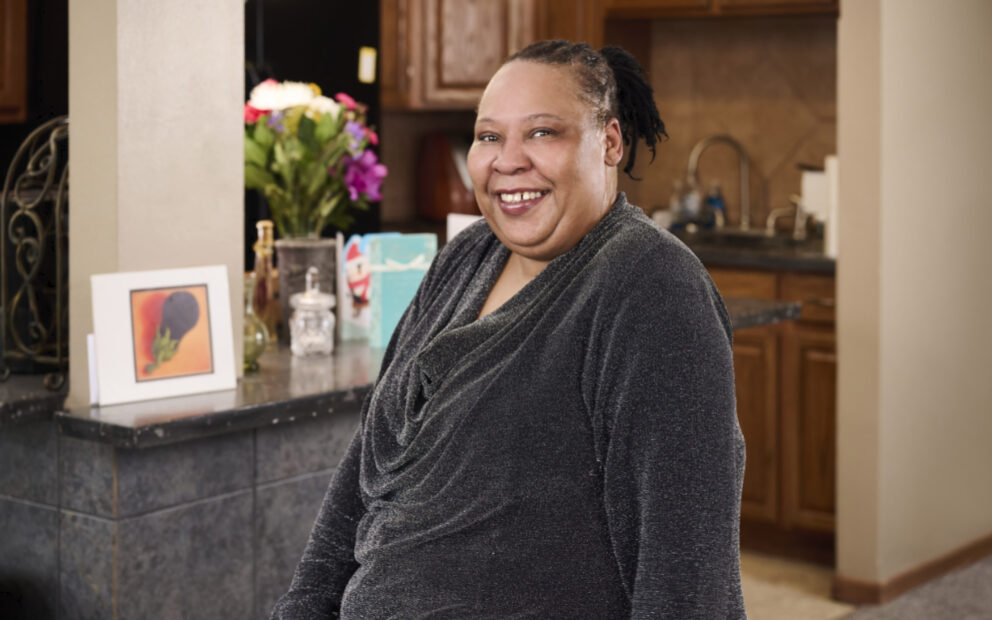Racism creates barriers to housing rights

Trina Murray, who has a Section 8 voucher, applied for a two-bedroom apartment to accommodate a live-in Personal Care Assistant (PCA). It should have been simple. Murray has a number of health concerns, including fibromyalgia and diabetes. She has bilateral bone disease in both knees and needs surgery. She has a note from her doctor documenting her need for a live-in PCA. But the Housing & Redevelopment Authority (HRA) worker refused her request.
“That lady was so mean to me and unprofessional,” Murray says. “It was like she was attacking me, being condescending, asking for details of my medical diagnosis. I don’t need to disclose my medical history, and they don’t have a right to ask me.”
Appealing To Housing Authorities in Vain
The worker would not tell Murray why she was being denied. Murray is a former social services worker, so she knew the steps to take. She researched the HRA policy and documented her correspondence. She appealed the denial and requested a reasonable accommodation.
Despite Murray’s background, knowledge, and research, she could not get anywhere. The HRA workers did not seem to see her as a person with legitimate health needs that required extra assistance. Finally, Murray told them she would get an attorney to represent her, and she reached out to Legal Aid.
“Who are these programs for, if not for someone like Ms. Murray?” says Staff Attorney Alex Kane. “Even without the surgery, she met the criteria for a person who needs a live-in PCA. They seemed to think she was trying to exploit the surgery as an opportunity to get a two-bedroom, but this person is exactly who the social services have been created for.”
Murray had struggled with the same HRA worker previously when she wanted to add a foster child to her voucher. She was told that if she didn’t stop complaining, she would lose her voucher.
An Issue of Racism
“I saw how the worker talked to me versus the way she talked to my neighbor who happens to be Caucasian,” says Murray, who has seen various ways that race plays into credibility when dealing with agencies and institutions. “The relationship was different. I do say race has something to do with it, and people don’t always want to talk about that.”
Things changed quickly when Kane stepped into the situation. The HRA workers were courteous and respectful. They explained there was a “high threshold” for proving the need for a live-in PCA and said that if he could demonstrate the need, they would be amenable to looking at the case.
“The greatest difficulty Ms. Murray had was in communicating with these people,” Kane says. “Where was the disconnect? I didn’t do that much. I just connected the dots that should have been connected very easily.”
Kane requested a more detailed letter from Murray’s doctor and sent it to the HRA. The HRA then approved a two-bedroom apartment to accommodate a live-in PCA.
Listening to the Whole Story
“When I called Legal Aid, they responded right away and listened to my whole story, not just part of it,” says Murray. “They educated me on each step, but the ultimate decisions were mine. I said I felt like I was being discriminated against and treated unfairly and that my rights were being violated. Even when the HRA told me I was wrong, Alex let me know I was right to stand up for myself. I felt like the weight of the world was off my shoulders. Legal Aid helped me stay in my community, and I thank them for that.”
Murray also had a concern that she had been paying too much rent based on her income and Section 8 guidelines. Kane followed up and found that Murray was correct. She is now paying the appropriate amount, living in a two-bedroom apartment with a PCA, and preparing for her surgeries.
Advice for Others
“One thing I’ll say to people who are disabled or of color or immigrant status, or who don’t have a whole lot of education: You do have rights and you have to fight for them,” Murray says. “If you know the sky is blue, stand on it. You have to do your own research and advocate for yourself to the best of your ability. Then, when you reach out to someone like Alex, you can give them evidence and facts to work with to help you reach your goal.”

